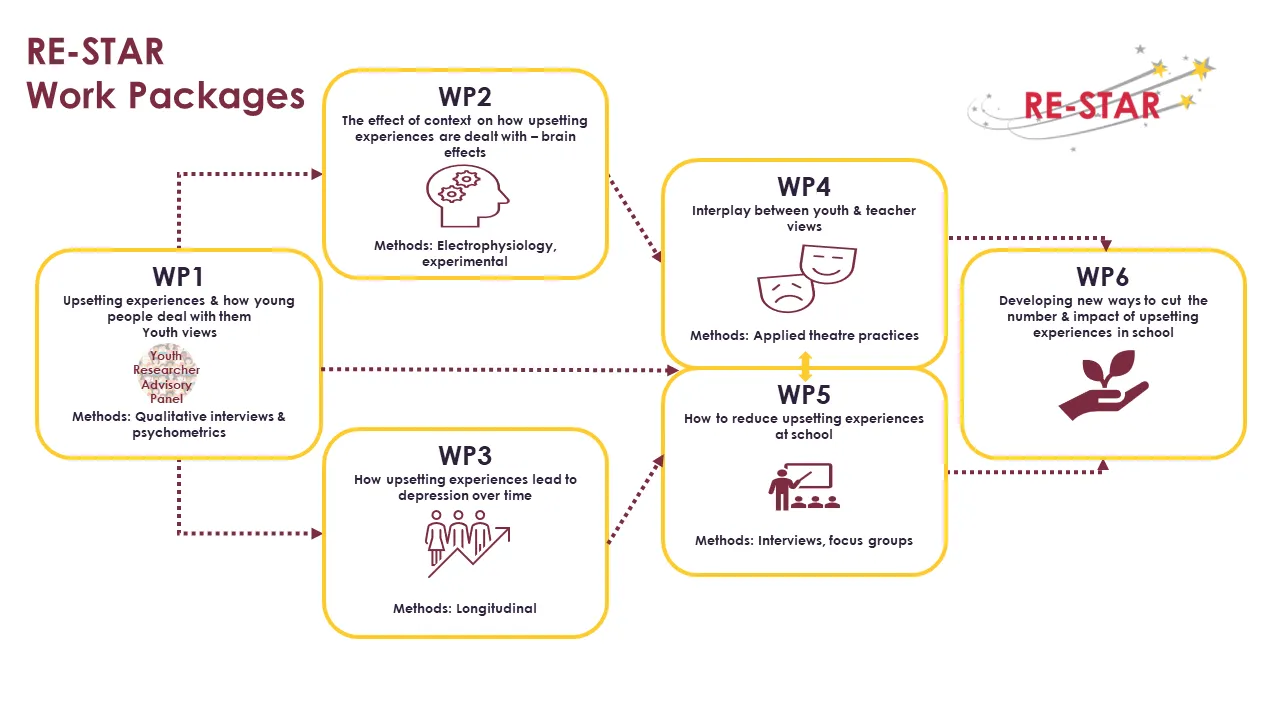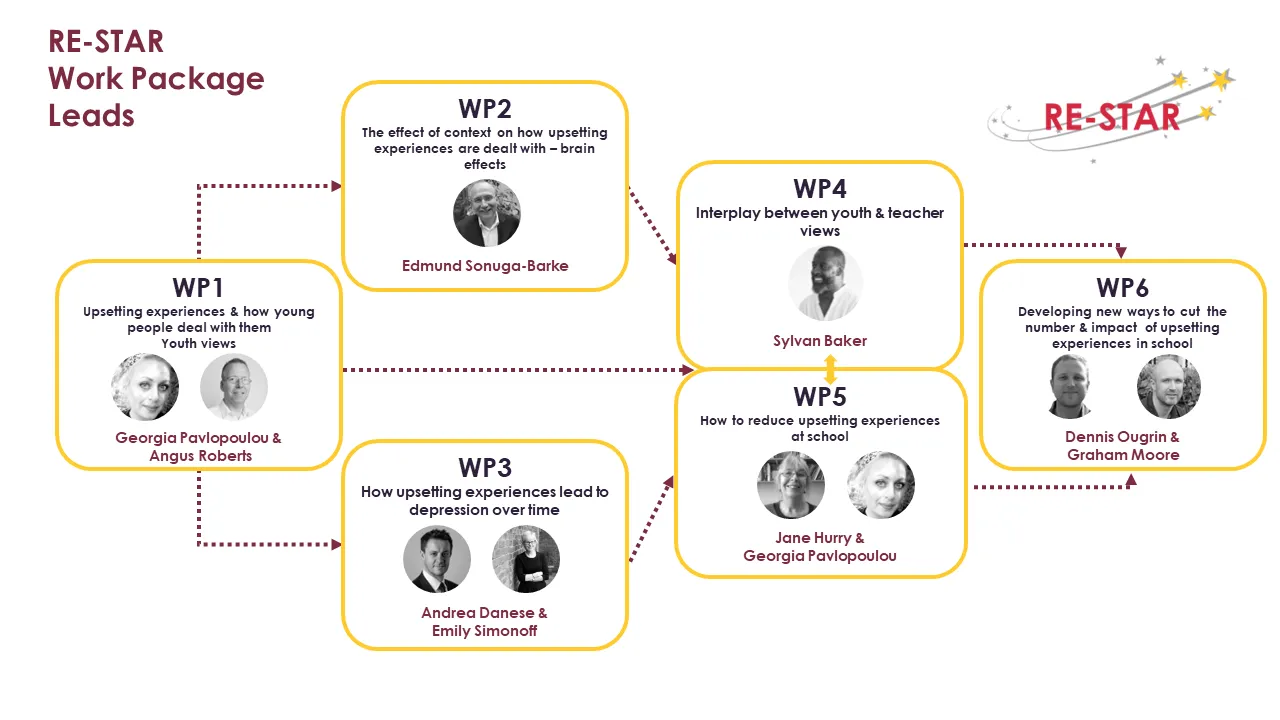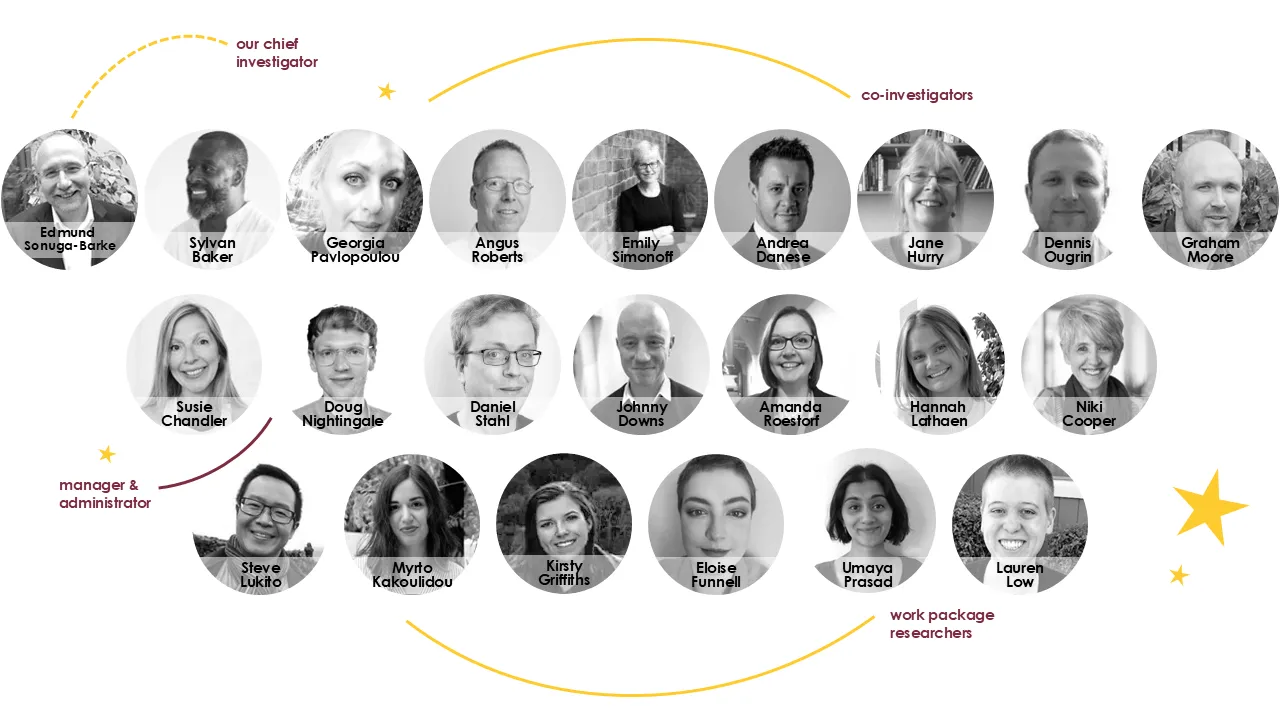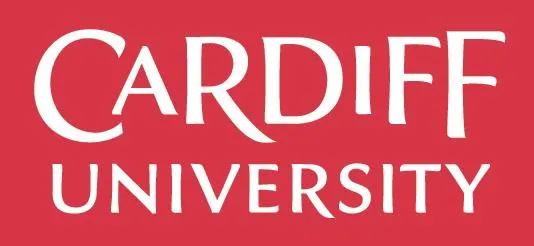RE-STAR is a four-year, interdisciplinary programme being led by Professor Edmund Sonuga-Barke of the Experimental Psychopathology and Neurodevelopment Research Group at King’s College London.
Many neurodivergent young people such as those with ADHD or autism traits develop depression during adolescence – but we currently don’t know which individuals are at risk, what underlying processes increase that risk or, perhaps most importantly, the best way to intervene to increase resilience to reduce that risk.
RE-STAR will address these gaps by exploring the interplay between autism and/or ADHD traits, exposure to environmental stressors, and emotional responding in neurodivergent young people (NYP), in driving developmental pathways to depression.
RE-STAR's Objectives
Working across disciplines, we have three main objectives:
- Explore emotional responses to everyday stressors from the young people's point of view and develop new, more authentic ways to measure them
- Use these new measurement approaches to identify potentially modifiable intervention targets by studying the cognitive/neurophysiological underpinnings of emotional responding in neurodivergent young people and examining why they lead to later depression in some individuals but not others
- Develop new strategies to arrest the negative progression from early adolescent neurodivergence to later depression, considering environmental adaptations as well as ways to support young people to manage challenging situations.



Watch the video below for an overview of RE-STAR from our Principal Investigator, Professor Edmund Sonuga-Barke:
Meet the team
Sylvan Baker, Central School of Speech and Drama | Jane Hurry, UCL Institute of Education | Amy Lock, ADHD Foundation | Daniel Stahl, King's College London | Angus Roberts, King's College London | Graham Moore, Cardiff University | Ned Redmore, Autistica
Johhny Downs, King's College London | Nikki Cooper, Place2Be | Georgia Pavlopoulou, Anna Freud Centre | Dennis Ougrin, Queen Mary University of London | Andrea Danese, King's College London | Emily Simonoff, King's College London

Work Package Teams
Work Package 1 (My Emotions and Me), our Research Associate is Steve Lukito, and our Research Assistant is Myrto (Myrofora) Kakoulidou.
Work Package 2 (Be Me!), our Research Associate is Steve Lukito and our Research Assistant is Eloise Funnell.
Work Package 3 (My Emotions and Me Over Time), our Research Associate is Kirsty Griffiths and our Research Assistant is Umaya Prasad.
Work Packages 4 and 5 (The Emotional Lives of Young People in School), our Research Associate is Myrto (Myrofora) Kakoulidou and our Research Assistant is Lauren Low.
Administration
Susie Chandler is our Project Manager and Lili Bokor is our Administrator.
Edmund Sonuga-Barke is our Chief Investigator.
Youth Researcher and Advisory Panel (Y-RAP)
We have recruited and are working alongside our Y-RAP, who will play an integral role in the planning and delivery of RE-STAR. Learn more about our duty of care protocol (pdf).
Funding
RE-STAR is funded by UKRI Medical Research Council.













